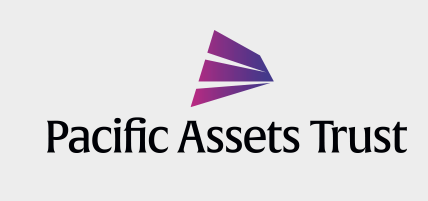Pacific Assets shares return +12.3% over H1 – Pacific Assets (PAC) has announced results covering the six-month period to 31 July 2019.. NAV total returns amounted to +10.5% over the period, which the company framed by comparing to an annualised return of +12.2% over the last five years, and of +11.9% over the nine-year period. The move from a small discount to a small premium at the end of the period meant that the total share price return was slightly better, at +12.3%.
The MSCI All Country Asia ex Japan Index (measured on a total return, sterling adjusted basis) rose by 8.9%. PAC stresses that its portfolio is based on the selection of businesses that meet its criteria, not on a policy of being modelled in relation to an index. The board is planning to add an alternative performance measure to the Company’s reports. In the chairman’s statement, PAC says its intention is to set a performance objective of RPI + 6%, measured over a three to five year time horizon.
View from chairman James Williams
James Williams, chairman of PAC, believes recent history suggests that a lot of Asian businesses should not be underestimated, even as the global outlook becomes murkier:“We face a combination of challenging economic and political circumstances in 2019 and beyond.
After a flirtation with the withdrawal of quantitative easing, monetary policy is once again being loosened as central banks respond to signals of declining economic activity. This creates a mixed picture, on the one hand risk assets always appreciate easier liquidity conditions and low interest rates, on the other hand businesses are more prone to setbacks as anticipated demand fails to materialise. While the balance so far in 2019 has been helpful to equity markets, the message delivered by large parts of the global bond market offering negative interest rates remains disturbing. Behind the generally positive indices there have been notable setbacks of some sectors and stocks.
We do not believe that political trends are generally the primary influence in the long-term direction of asset prices. However, the escalation of global trade tension from rhetoric to action risks undermining the global supply chains that have been such a contributor to non-inflationary economic growth over the last 30 years. Asia, as is well known, has had a major part to play in the integration of global economies. However Asian businesses have weathered all manner of politically induced shocks over the years, and it would be unwise to underestimate their in-built resilience now.
We must keep in mind that many of the investments that the company owns are focused on serving their large domestic audiences. The theme of an emerging middle class in countries as large as India and China means that providers of consumer products or financial services will continue to be well placed whatever disturbing geo-politics may unfold. Investments are selected by our manager that will be able to withstand turbulence while maintaining a business model that is well tried and coherent.”
Lower return outlook likely
In his outlook, James adds: “We believe that we have moved into a period of downward adjustment of investment returns, exemplified by the paltry or even negative interest rates on fixed income assets. This suggests that risks are being priced towards a deflationary environment, rather than a return to higher inflation. In a more challenging world possibly for some time to come, it is important that investors lower their sights of expected returns.
We note that Asian ‘emerging markets’ have in recent years shown less vulnerability to a rising dollar, rising interest rates, and rising trade tensions, than in previous such episodes. Our manager continues to seek out companies that are equipped with the business model and management that will ensure their long-term sustainability.”
About PAC
PAC has an investment objective of achieving long-term capital growth through investment in selected companies in the Asia Pacific region and the Indian sub-continent, excluding Japan, Australia and New Zealand (the ‘Asia Pacific Region’). Up to a maximum of 20% of the company’s total assets (at the time of investment) may be invested in companies incorporated and/or listed outside the Asia Pacific Region including Japan, Australia and New Zealand, but whose economic activities are predominantly within the Asia Pacific Region.
PAC invests in companies which the manager believes will be able to generate long term growth for shareholders. The manager’s investment approach requires that all investments are sustainable. This does not mean ‘green’, ‘ethical’ or ‘clean-tech’, but rather that companies have strong management and a robust business model in terms of earnings, corporate governance and codes of conduct. They are not seeking to promote uneconomic investment in socially acceptable propositions. Instead, they believe that companies which have carefully considered the sustainability of their business models are more likely to provide superior long-term returns for shareholders.
PAC: Pacific Assets shares return +12.3% over H1
